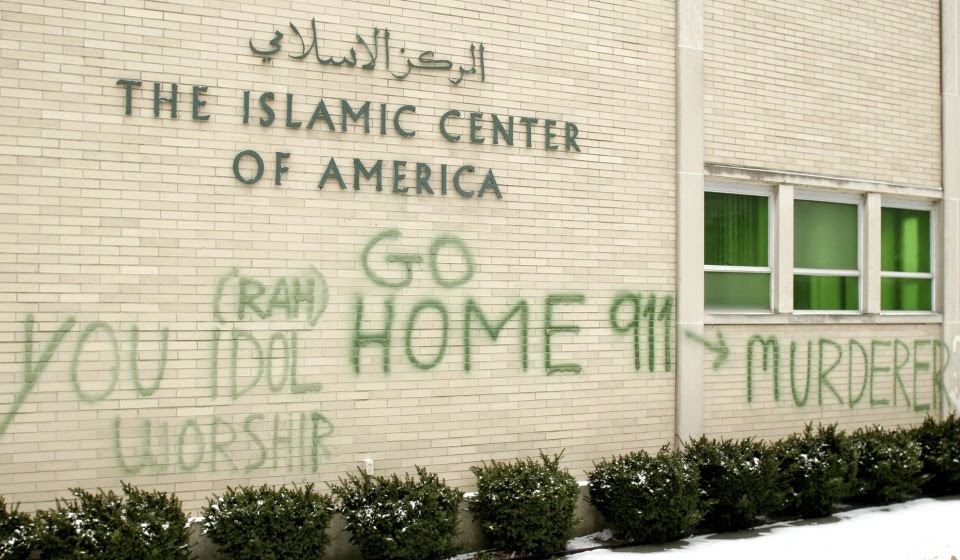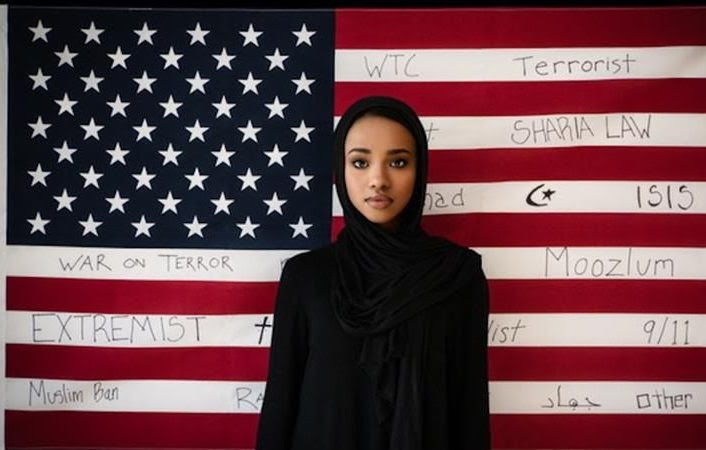
Is President Trump partly responsible for recent spikes in anti-Muslim hate crimes?
In their paper Making America Hate Again? Twitter and Hate Crime Under Trump, a team of researchers from the University of Warwick discovered a link between President Trump's tweets on Islam and a corresponding rise in anti-Muslim hate crimes.
The researchers came to this alarming conclusion after studying FBI hate crime statistics and comparing them to Trump’s Twitter history.
Their findings revealed a stark rise in anti-Muslim hate crimes that began during Trump’s presidential campaign. These hate crimes were also concentrated in counties with high Twitter usage - boosting the chances that attackers had been inspired by Twitter messages. Then there’s this: researchers found a direct correlation between the number of Trump tweets criticizing Muslims in a given week and the number of anti-Muslim hate crimes reported in that time span.
Their findings revealed a stark rise in anti-Muslim hate crimes that began during Trump’s presidential campaign. These hate crimes were also concentrated in counties with high Twitter usage - boosting the chances that attackers had been inspired by Twitter messages. Then there’s this: researchers found a direct correlation between the number of Trump tweets criticizing Muslims in a given week and the number of anti-Muslim hate crimes reported in that time span.
"I think it all comes together to create this kind of environment where targeting Muslims is acceptable or has become acceptable,” said Madihha Ahussain, of the Muslim-rights group Muslim Advocates.
 What Researchers Looked At
What Researchers Looked At
Researchers studied the 26 year period for which the FBI has published data surrounding hate crimes against Muslim-Americans. What became immediately clear is that Trump’s time in office is a historical outlier in terms of the average number of reported hate crimes - eclipsing even the spike in anti-Muslim attacks prevalent in the post-9/11 era.
While the researchers were careful to elaborate that they don’t believe Trump directly encourages supporters to carry out violence against Muslim citizens, they also don’t rule out the possibility that Trump’s eagerness to criticize Muslims has led to a rise in Islamophobia and hate crimes. Nor has this trend been limited to U.S. soil, as the recent “Punish a Muslim Day” incident in the U.K. goes to show.
Tweets on the Record
Perhaps the most striking Twitter example cited by critics were a series of fake videos retweeted by Trump that claimed to show violent acts being carried out by Muslims in Europe. After a strong backlash, Trump later apologized for retweeting the videos.
In another tweet, sent last summer, Trump seemingly endorsed the tactics many attribute to a U.S. general who served in the Philippines. He reportedly used pig's blood as a way to threaten Muslim prisoners into submission - pigs are considered unholy in Islam and coming into contact with their blood amounts to a holy desecration of the body.
Study what General Pershing of the United States did to terrorists when caught. There was no more Radical Islamic Terror for 35 years!— Donald J. Trump (@realDonaldTrump) August 17, 2017
Then there were the numerous tweets Trump sent regarding his travel ban (criticized by some as a de facto Muslim ban) which elicited strong reactions from both sides.
Researchers examined the impact of these tweets - along with many others - and came to the conclusion that Trump’s messages could be having a notable effect on hate crime rates.
Security Concerns: Real or Fake?
Although this evidence is largely circumstantial, on the whole it paints a disturbing picture. Like it or not, Trump’s criticism of Islam has struck a chord with many Americans who believe that Islam poses a grave threat to the Western world. With Islamic terror attacks continuing to occur, many are convinced that ensuring national security will require taking a hard line on issues like immigration. But others argue these fears are largely fabricated, and point out that fearmongering will only make the situation worse.
What do you think? Is President Trump to blame for the rise in anti-Muslim sentiments, or are there other forces at play?


No hay comentarios:
Publicar un comentario